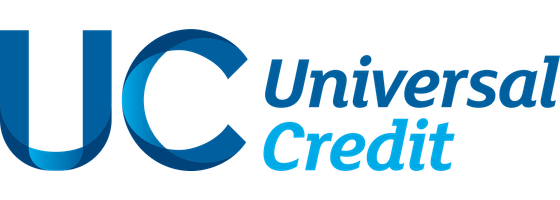- No origination fee.
- Soft credit check for prequalification.
- Same-day financing available.
- Unemployment protection program.
Best RV Loans for February 2025

Our evaluations and opinions are not influenced by our advertising relationships, but we may earn a commission from our partners’ links. This content is created by TIME Stamped, under TIME’s direction and produced in accordance with TIME’s editorial guidelines and overseen by TIME’s editorial staff. Learn more about it.
RV ownership has many perks. Want to pack up and work from a national park? Get an RV. Want to vacation with your kids on the cheap? Get an RV. Feel like disconnecting from the world and living life on the road? Yep, get an RV.
Although RV ownership sounds idyllic, it does come at a price. The average RV buyer will spend between $10,000 and $400,000 on their motorhome. Since most people don’t have that much money just lying around, many will end up taking out a loan to finance their RV purchase.
What is the best RV loan interest rate you can get? It will depend on the lender and your credit score, among other factors. Learn more about the best RV loans to determine which one is the best match for you.
| Lender | Best for | APR range | Loan amount | Loan term | Credit score required |
|---|---|---|---|---|---|
SoFi | No fees | 8.99% to 25.81% | $5,000 to $100,000 | 24 to 84 months | 650 |
LightStream | Fast funding | 8.49% to 25.99% | $5,000 to $100,000 | 24 to 144 months | 660 |
Alliant Credit Union | Large loans | 7.49% to 8.74% | Up to $300,000 | 120 to 240 months | 640 |
LendingPoint | Small loans | 7.99% to 35.99% | $2,000 to $36,500 | 24 to 72 months | 600 |
Upgrade | Bad credit | 8.49% to 35.99% | $1,000 to $50,000 | 24 to 84 months | 580 |
Universal Credit | Loan comparison | 11.69% to 35.99% | Up to $50,000 | 36 to 60 months | 580 |
PenFed Credit Union | Good credit | 7.99% to 17.99% | Up to $50,000 | Up to 60 months | 700 |
Prosper | Peer-to-peer lending | 6.99% to 35.99% | $2,000 to $50,000 | 24 to 60 months | 600 |
Our list of the best RV loans includes a variety of lenders who can match the needs of a wide range of borrowers, from those with poor credit to those looking for larger-than-usual loans.
SoFi offers personal loans between $5,000 and $100,000 that can be used to finance an RV purchase. The lender offers same-day funding, so you can get the money and make your purchase fast—a huge benefit for borrowers who live in areas with high demand for RVs.
One of the biggest draws of an RV loan from SoFi is that the lender doesn’t charge an origination fee, making it cheaper to borrow money for your RV purchase. In addition, SoFi offers unemployment protection. In the case of job loss, the lender will modify the loan payments while also helping you look for a new job. However, SoFi doesn’t allow co-signers, which could rule it out for some borrowers.
Lightstream offers personal loans that can be used for numerous purposes, including the purchase of an RV. The application is entirely online, and the process is streamlined to make it easy. Once your loan is approved, you can receive fast funding—as fast as the same day.
With Lightstream, you can borrow anywhere from $5,000 to $100,000 to help finance your RV. Rates are fairly average, but customers will enjoy several other perks, such as no origination fee and no prepayment penalty. However, there’s no option to prequalify, which means you’ll have to apply and undergo a hard credit check to see if you qualify. That makes it a good option for borrowers with good credit who are likely to be approved. If you have a fair or poor credit score, it may be better to seek out lenders that offer prequalification.
Alliant Credit Union offers RV loans of up to $300,000, making it a top pick for those who have their hearts set on a luxury RV model. You can finance your loan for up to 12 years, which means more affordable monthly payments if you do finance a large amount. And if you pay off your loan early, you won’t be required to pay a prepayment penalty.
Since Alliant is a credit union, you must become a member if your loan is approved, and you must open a savings account. To be eligible for membership, you must be a current or retired employee at one of the credit union’s partner businesses or organizations or have a family member who is an Alliant member. There are a few other ways to become a member, but those who are ineligible will need to look elsewhere for their RV financing. There’s also no prequalification process, which means you’ll have to apply and submit to a hard credit check before knowing whether you’re qualified.
LendingPoint offers RV loans between $2,000 and $36,500, which makes it ideal for those seeking a smaller amount. Loans can be funded as soon as the next business day after approval. In addition, LendingPoint reportedly accepts credit scores as low as 600, which makes it a good choice for those with less-than-ideal credit.
One of the drawbacks of a LendingPoint RV loan is the potentially high origination fee—as high as 10%, depending on the state where you live. There is also no option for cosigners or for joint loans, which could make this lender out of reach for some borrowers. Finally, LendingPoint doesn’t issue loans to residents of Nevada or West Virginia; if you live in either of those states you’ll need to look elsewhere. Despite these drawbacks, LendingPoint is a solid choice for a smaller RV loan for those with low credit scores.
Upgrade stands out because it approves personal loans for borrowers with credit scores as low as 580. After approval, your loan could be funded in as little as one business day. There is no penalty for paying your loan off before its end date.
However, Upgrade does have a relatively high APR range, which means you could end up paying more interest over the life of the loan. Additionally, Upgrade charges an origination fee that could range from 1.95% to 9.99%, adding to the initial expense of the loan.
Universal Credit partners with several lenders to offer personal loans to borrowers. When you enter your information on the Universal Credit website, you’ll be able to view offers from a number of lenders to see which one best fits your needs and budget. Loans can be funded as fast as the next business day, and there is no penalty for paying off your loan early.
Depending on the loan you choose, you might be faced with a relatively high APR, which increases the amount of interest you’ll pay over time. What’s more, loans taken out through Universal Credit also have origination fees ranging from 5.25% to 9.99%, which adds to the initial out-of-pocket cost of taking out a loan. However, the ability to compare several loans on a single platform will outweigh these disadvantages for many borrowers.
If your credit score is 700 or above, you may be able to get an RV loan from PenFed (Pentagon Federal) Credit Union. This lender has a high credit score requirement compared to others, which rules it out for those with a lower credit score but can be a huge benefit for those who qualify. Because of this stringent eligibility requirement, PenFed has a low APR range of 5.25% to 9.99%.
To get a loan from PenFed, you’ll need to be a current credit union member or be willing to join as a new member. Membership is open to everyone, so there are no qualification requirements to meet. Members receive benefits such as discounts, expert advice, and financial relief assistance. However, you will need to maintain a PenFed savings account in order to get a personal loan. While PenFed isn’t likely to be an option for those with low credit scores, those who qualify will enjoy a host of advantages.
Prosper offers RV loans through peer-to-peer (P2P) lending. This method of lending matches borrowers with approved lenders through an online platform, allowing them to bypass banks altogether, which could be a benefit for some. You can also get a joint loan through Prosper, which is ideal for those who need a second borrower to qualify for a loan.
Prosper loans do come with an origination fee up to 5%, which may be lower than some lenders but still increases the cost of borrowing money. In addition, Prosper’s maximum APR is relatively high at 35.99%, though borrowers with good or excellent credit scores will likely get a much lower rate for their RV loan.
To determine the best RV loans, we scoured the market to find the lenders that offered the best range of loan amounts, loan terms, APRs, and borrower eligibility requirements. We looked for any unique qualities that helped a lender stand out among the competition. We placed an emphasis on lenders that specifically offer loans intended for RVs, though we also looked at personal loan lenders that could help borrowers fund their RV purchase. Once we had our list of finalists, we categorized them based on their biggest strengths.
An important part of applying for any type of loan is doing research to compare your options and see which one best fits your needs. The following tips will help you compare RV loans and determine which is the best one for you.
A loan’s annual percentage rate, or APR, signifies how much you’ll pay in interest each year for the loan. Lenders will usually approve loans with lower APRs for borrowers with good or excellent credit scores, whereas those with poor credit scores will likely pay much higher APRs. Comparing APRs across lenders lets you see which will work best for you.
Lenders can differ significantly on their credit score requirements for borrowers. Check the requirements to see which are likely to approve your RV loan application. If your score is fair or poor, make a plan to boost it before applying for a loan.
A loan term is the time you have to repay the loan once approved. Lenders usually offer personal loans with a term of one to two years up to several years. If you opt for a longer term, your monthly repayments will be smaller.
For example, if you borrow $10,000 over five years, you’ll pay more per month than if you borrow that amount for seven years.
Is there a prepayment penalty if you are able to pay off the loan sooner? Does the lender charge an origination fee? Needless to say, it’s better not to have either of these.
Customer reviews can help give you an idea of borrowers’ experiences with the lenders you’re considering. A lender with mostly negative reviews might be one to avoid, though a few negative reviews shouldn’t put you off a lender—especially if they respond to reviews to try and make things right for the customer.
It’s also important to note that customers are more likely to leave a review after a bad experience than after a good one, so take online reviews with a grain of salt.
The exact eligibility requirements for an RV loan will vary by lender. However, most lenders have a few common requirements that borrowers will need to meet in order to have their application approved. The following are just a few of the most common RV loan requirements.
One of the main things lenders consider when reviewing a loan application is credit score. If your credit score is poor, you’ll find it harder to get approved for an RV loan. If your score is good, however, you’ll probably have your pick of loans, and those loans will likely have lower APRs.
A credit score of 670 and up is generally considered “good” by lenders. If yours is below that, it’s smart to make a plan to improve your credit score before applying for a loan. Doing so could save you thousands per year in interest.
As part of your loan application, you must submit proof of income to the lender. If your income isn’t sufficient to successfully repay the amount you want to borrow, your application will probably be denied. Alternatively, you may not be able to borrow as much as you want to on your current income.
That’s why making a realistic budget when shopping for an RV is important. Look at your income to determine how much you can afford to spend monthly on an RV loan to avoid any surprises down the road.
In addition to your credit score, lenders will look at your overall credit history. If you have a history of late payments, the lender will think twice before approving your loan application—after all, no lender wants to lend to a borrower who may not repay the loan.
Focus on paying your bills on time and avoid racking up debt on credit cards. Check your credit report for any inaccuracies so you can file disputes before you submit your loan application.
If you want to buy an RV, there are several other ways to get the money to pay for it. Some common alternatives to RV loans include home equity loans and personal loans.
If you own your home, you can tap into your equity to help finance your RV purchase. A home equity loan lets you borrow money from the equity you have in your home. You’ll need around 20% equity in your home to qualify for a home equity loan. Additionally, if you default on the loan, you risk losing your home.
A cash-out refinance is another way to tap into your home’s equity, but you’ll have one monthly mortgage payment instead of two.
With this type of loan, you will refinance your existing mortgage for more than you currently owe, and take a lump sum cash payment from your home’s equity. Since this type of loan replaces your original mortgage, you’ll only make one payment per month. However, just as with a home equity loan, you will lose your house if you default.
With many lenders, an RV loan is actually a personal loan. Personal loans are generally easy to qualify for (as long as you have a decent credit score and history). However, if your RV purchase exceeds the amount of the personal loan, you’ll have to settle for a cheaper model or find a secondary financing option.
A full understanding of RV loans is important for anyone looking to finance a motorhome. Learn more about RV loans below.
Put simply, an RV loan is a type of loan you can use to buy an RV. Some lenders advertise loans for RV purchases, while others offer personal loans to help the borrower pay for an RV.
When you are approved for an RV loan, the lender will issue you a lump sum in the loan amount, which you can use for your RV purchase. Then, you’ll make monthly payments of the loan principal, plus interest, for the length of the loan term. Your payments will be higher if your loan has a high APY or a short term and lower if you have a low APY and a longer loan term.
The exact amount of time you can finance an RV will depend on the lender. However, lenders usually offer RV loans for as short as two years to as long as 12 years.
Keep in mind these positives and negatives when determining the best way to finance your RV purchase.
With so many options available for RV loans, it can be difficult to determine which one will best meet your needs. The best RV loans make it easy to apply online, avoid unnecessary fees and penalties, and successfully finance your RV quickly and without a great deal of hassle.
The best time to buy an RV is in the late fall and winter months. RV prices tend to drop during these months since the demand for RV purchases is lower. This means you could get a better deal on an RV by shopping in the off-season.
The answer to this question will depend on the lender. Some will allow co-signers on RV loans, while others won’t. If you anticipate needing a cosigner, ensure that your shortlisted lenders have this option before applying for a loan.
The interest on your RV loan may be tax-deductible if you use the RV as a primary or secondary home. However, smaller or more basic RVs without bathroom or kitchen facilities will likely not qualify for a tax deduction.
When it comes to calculating an RV loan payment, many variables come into play, making it hard to put an average number on it. Your loan payment will depend on the amount borrowed, the loan APR, and the loan term.
It’s certainly possible to get an RV loan with bad credit, but you’ll probably have to work a bit harder to get approved. In general, lenders are more wary of approving loans for borrowers with bad credit since there is a bigger risk of them defaulting on the loan. If you have bad credit and find a lender that will approve your RV loan application, expect to pay more interest.
The information presented here is created by TIME Stamped and overseen by TIME editorial staff. To learn more, see our About Us page.











